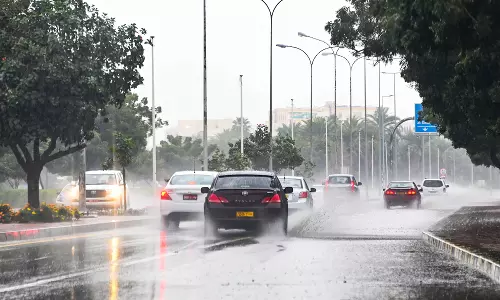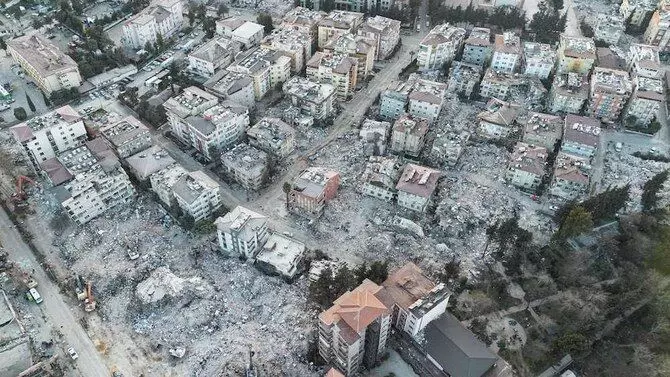
6.4 magnitude quake shakes Turkey -Syria border 2 weeks after 1st disaster
text_fieldsAntakya: Just two weeks after the area was hit by a massive earthquake that killed over 47,000 people and damaged or destroyed hundreds of thousands of homes, another earthquake struck the border region between Turkey and Syria on Monday.
One of the hardest-hit areas in the magnitude 7.8 earthquake that occurred on February 6 was the town of Defne in Turkey's Hatay province, which is where Monday's earthquake was centred. It was followed by a second, magnitude 5.8 temblor, which was felt as far away as Egypt, Cyprus, Israel, Syria, Jordan, and Cyprus.
Syria, Egypt, and Lebanon were all affected by Monday's earthquake, which had an epicentre close to Antakya in southern Turkey and had a magnitude of 6.3, Reuters reported.
According to the European Mediterranean Seismological Center (EMSC), it only penetrated two kilometres (1.2 miles) into the earth, which could have amplified its impact below ground.
Suleyman Soylu, the interior minister of Turkey, reported three deaths and 213 injuries. Six people were allegedly trapped in three collapsed buildings, and search and rescue operations were in progress there.
Muna Al Omar claimed that when the most recent earthquake struck, she was in a tent in a park in central Antakya, Associated Press reported.
“I thought the earth was going to split open under my feet,” she said, crying as she held her 7-year-old son in her arms
When rescue efforts in the wake of the Feb. 6 earthquake and its aftershocks were winding down, attention moved to critical shelter and restoration work, US Secretary of State Antony Blinken indicated on a visit to Turkiye that Washington will support "for as long as it takes."
According to Turkiye's Disaster and Emergency Management Authority AFAD, the death toll from the quakes two weeks ago has risen to 41,156, and it is projected to rise further given that 385,000 apartments are known to have been destroyed or substantially damaged and that many people are still missing.
In 11 Turkiye provinces that were affected by earthquakes, President Tayyip Erdogan announced that construction of approximately 200,000 apartments would start next month.
According to Erdogan, the new structures won't be any taller than three or four stories, will be constructed to higher standards and on more stable terrain after consulting "experts of geophysics, geotechnical, geology, and seismology," among other specialists.
The Turkish president declared that cultural landmarks would be reconstructed by maintaining their "historic and cultural texture."
According to Erdogan, there are approximately 1.6 million people living in temporary shelters.
According to the US State Department, the amount of American humanitarian aid provided to help with the earthquake response in Turkey and Syria has surpassed $185 million.
According to the UN agency for sexual and reproductive health (UNFPA), 356,000 pregnant survivors of earthquakes urgently need access to healthcare services.
According to the UN organisation for sexual and reproductive health (UNFPA), there are roughly 356,000 pregnant survivors of the earthquakes who urgently require access to health care.
These include 130,000 mothers in Syria and 226,000 women in Turkey, of whom roughly 38,800 will give birth in the upcoming month. Many of them were battling for food and water while living in camps or outside in the bitter cold.
In the upcoming weeks, there is a possibility of disease outbreaks, the health agency of the European Union warned on Monday. According to the Centers for Disease Control and Prevention,“ food and water-borne diseases, respiratory infections and vaccine-preventable infections are a risk in the upcoming period, with the potential to cause outbreaks, particularly as survivors are moving to temporary shelters.”























